Personal and professional development are staples of a continuous improvement regimen that can propel us in our leadership within our organizations, or detract from our progress if we fail to nurture the knowledge that we and our staffs need to thrive. The three sections that follow can be read on their own or as a whole, and each offers guidance and advice as you develop your own professional development plans for the coming year.
Your Inner Student, by Suzanne Healy
The Bedrock of Continuous Learning, by E. Lander Medlin
Yearning to Network in Person, by Beth Clark
Your Inner Student
by Suzanne Healy
What do you remember about your educational experience as a young person? Your recollections may be hazy, but you can probably recall a favorite class in high school or a college professor who made a lasting impact on your educational journey. Those memories can stir your heart as you reflect on the excellence of a particular teacher, the knowledge you gained from them, and how they helped to shape the person you are today.
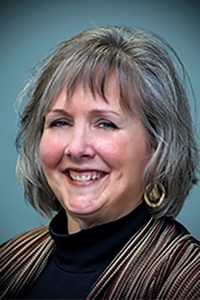 Yet, when was the last time your inner student participated in learning opportunities that created those same feelings? In 2021, as we deal with so much uncertainty and upheaval, nourishing our inner student is critical for our health and the health of the schools we serve. APPA uniquely positions facilities professionals to change lives by bringing skills, knowledge, and confidence to each team member, enhancing their credibility and overall quality of life through various educational opportunities.
Yet, when was the last time your inner student participated in learning opportunities that created those same feelings? In 2021, as we deal with so much uncertainty and upheaval, nourishing our inner student is critical for our health and the health of the schools we serve. APPA uniquely positions facilities professionals to change lives by bringing skills, knowledge, and confidence to each team member, enhancing their credibility and overall quality of life through various educational opportunities.
APPA provides many such opportunities—and two of them were offered last year for the first time. The first began on August 3, 2020, when APPA kicked off the inaugural professional development program known as the Virtual  Facilities Summit (VFS). In collaboration with various business partners and member institutions, APPA staff developed the VFS by providing broad access to a wide range of cutting-edge content that was timely and relevant. The virtual gathering of nearly 600 participants heard from experienced speakers sharing real-life case studies in the areas of operations and maintenance, finance, key performance indicators (KPIs), leadership, human resources, COVID-19, and much more. Conferences such as these stimulate our inner student and recharge our passion for the profession of facilities management.
Facilities Summit (VFS). In collaboration with various business partners and member institutions, APPA staff developed the VFS by providing broad access to a wide range of cutting-edge content that was timely and relevant. The virtual gathering of nearly 600 participants heard from experienced speakers sharing real-life case studies in the areas of operations and maintenance, finance, key performance indicators (KPIs), leadership, human resources, COVID-19, and much more. Conferences such as these stimulate our inner student and recharge our passion for the profession of facilities management.
Yet another great educational opportunity was launched last fall with the first APPA Facilities Symposium (AFS), held November 16-18, 2020. This program engaged our mid-level professionals who thrive on technical programming that arms them to meet new challenges, while addressing the critical needs that impact them daily.
Toolkit:
As a true labor of love, the Supervisor’s Toolkit is a valuable learning experience for facilities supervisors and those aspiring to be one.
– Michelle Frederick, Dean of Supervisor’s Toolkit
When planning the Facilities Symposium, our professional development staff sought to include the issues that can affect excellence within facilities, while ensuring that issues related to health and well-being—especially during the COVID-19 pandemic—were incorporated. And because at APPA, we recognize more than ever the importance of strong teams and innovative leaders, the staff also tried to include platforms that address both the individual and the team. The AFS covered several of these key topic areas, including COVID-19, technology, the student of the future, asset management, the importance of data, HVAC, and others. As great influencers such as Maya Angelou remind us, “When you know better, you do better,” a lesson that was clearly interwoven throughout the AFS content.
Another educational resource that has been benefiting our membership for many years is the APPA Leadership Academy. One of the elements of leadership that the Academy stresses is trust, which is particularly relevant today. David De Cremer, founder and director of the Center on AI Technology for Humankind, shared in his article entitled “What COVID-19 Teaches Us About the Importance of Trust at Work” how companies with strong, trusting relationships will always outperform those who lack this component. While we all recognize that the “new workplace” we established due to the impact of COVID-19 has highlighted trust deficiency within organizations, the Leadership Academy has always emphasized the importance of trust as a foundation for organizational culture.
Academy:
We want the Academy to make a difference in your life. Leadership can be learned and applied to any role in your life, professional or personal. Leadership is a choice and not a position. Choosing what is right is a result of good leadership principles, practices, and choices.
– Paula Farnsworth, Dean of Leadership Academy
The Academy helps your inner student to lead and ensure a culture of trust by taking you on a personal deep dive, starting with self-examination and moving outward to examine the engagement you have with your organization and how your colleagues influence your actions. Past participants have often shared that the program’s self-exploration builds character and competence and helps them to realize that we are more alike than not. The more we realize our mutual interdependence as leaders and followers, the more we develop our leadership skills and the more we are able to impact change across our organizations.
We couldn’t have a complete discussion of APPA’s excellent educational resources without mentioning the Supervisor’s Toolkit. Organizational success starts with the “building blocks” who are our colleagues on the front line, the daily warriors who are often unseen, making magic happen throughout the institution. The Supervisor’s Toolkit celebrates these critical institutional players with an empowering educational offering. The content offered engages participants in a conversation about administration, communication, motivation, and much more. Toolkit participants say this life-changing program is not just about knowledge building—it’s about character building, because it boosts their self-confidence and inspires them to take the next step on their professional journey. We must always remember that the greatest gift we can give to our inner student is to reward ourselves with personal achievement.
Make 2021 the year of growth for yourself and your team as you partner with us at APPA!
Investment in professional development opportunities for yourself and your team is not something you can afford to defer.
Suzanne Healy is APPA’s director of professional development; she can be reached at [email protected].
The Bedrock of Continuous Learning
by E. Lander Medlin
APPA’s strategic planning framework, Preparing for Every Future, recognizes that the fundamental mission of a professional association is to provide its members with continuous learning opportunities and the chance to build professional networks for peer-to-peer learning and development.
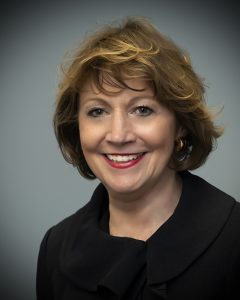 APPA is indeed preparing for the future, even though our future has been accelerated and further altered by the global pandemic. Suffice it to say that disruptive change did not emerge slowly—it roared through 2020 with a vengeance. The pandemic brought with it a disastrous economic fallout, revealed racial inequities, and highlighted dramatic climate change. These four crises are transforming our institutions and our profession.
APPA is indeed preparing for the future, even though our future has been accelerated and further altered by the global pandemic. Suffice it to say that disruptive change did not emerge slowly—it roared through 2020 with a vengeance. The pandemic brought with it a disastrous economic fallout, revealed racial inequities, and highlighted dramatic climate change. These four crises are transforming our institutions and our profession.
On the heels of COVID-19 have come shifting public perception of educational institutions, diminishing financial resources, generational turnover, widening workforce skills gaps, and groundbreaking technologies that are drastically changing the facilities landscape. Nevertheless, we have now entered the learning economy, where knowledge is the valued resource and where learning is the critical process. Employability now depends less on what we already know and more on how we will demonstrate that we can learn, apply, and adapt. Stephen M.R. Covey summarized this notion perfectly when he said, “If you aren’t continuously learning, you will quickly become irrelevant.” Hence, the key to our success is to adapt to these changing times through the provision of continuous learning. APPA offers the professional development programming necessary for members to keep pace with the constantly shifting and ever-growing demands of the facilities profession.
This is exactly why APPA’s professional development programming is, now more than ever, an essential institutional investment and critical for our staff to adapt to this continuously evolving future. To paraphrase educational consultant A.J. Juliani, our job is not to prepare our students, staff, and our organizations for something. Our job is to help our students, staff, and our organizations prepare themselves and their organizations for anything! The Leadership Academy and Supervisor’s Toolkit are both designed as a structured approach and a facilitated journey that enhances individual growth and resilience over time—a huge win for any organization.
 No matter the circumstances, APPA is the association of choice because it brings members together as a community under the niche focus of managing educational facilities. APPA provides the physical and virtual places for members to share experiences and best/emerging practices, and to build their skills, knowledge, and abilities. APPA’s strong peer-to-peer community and tailored educational content are key differentiators for our program offerings. Facilities managers are quickly recognizing that the key to success in an ever-changing environment requires continuous learning.
No matter the circumstances, APPA is the association of choice because it brings members together as a community under the niche focus of managing educational facilities. APPA provides the physical and virtual places for members to share experiences and best/emerging practices, and to build their skills, knowledge, and abilities. APPA’s strong peer-to-peer community and tailored educational content are key differentiators for our program offerings. Facilities managers are quickly recognizing that the key to success in an ever-changing environment requires continuous learning.
The core of APPA’s Leadership Academy is our emphasis on trust and culture as the foundational elements for organizational success. Establishing this foundation is easier said than done. Openness and transparency help build trust and are created through sincere, honest communication expressed daily. Chuck Farnsworth, our senior leader for learning management and Leadership Academy facilitator, has an unwavering commitment to developing high-trust, results-driven, principle-centered environments that value people as the way to solve the complex issues facing organizations today and in the future. The words he lives by provide some insight into this commitment: “Happy are those who dream dreams and are ready to pay the price to make them come true” (Cardinal Léon Joseph Suenens).
Trust is not a noun but a verb. It’s active, not passive; the skills of trust must be learned and its associated behaviors formed into lifelong habits. In The Speed of Trust, Stephen M.R. Covey emphasized how important trust is when he said, “Trust has to be the highest value in your organization. It’s a culture issue. The greatest currency leaders have is the trust others have in them; the greatest asset leaders have is their credibility; and the greatest power leaders have is how they choose to extend trust to others.” For all the right reasons, our professional development programs place a significant focus on content and facilitation in developing trust and culture in organizations.
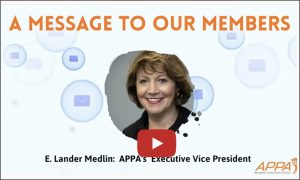 As for organizational culture, APPA believes that people who feel truly valued by their organizations make a greater contribution to the institution—and what better way to demonstrate that value back to your staff members than by investing in their professional development. That sense of individual contribution can’t be demanded or bought; it comes from how one gives themselves to their work—by their own choice, and not out of compliance. To finally say (or hear), “I’m essential!” is incredibly satisfying. The Leadership Academy shows you how to lead people to find this sense of pride in themselves and in their work. It means shifting one’s mindset to see the world differently, but it must come from within each individual—that’s where the real work occurs. Furthermore, validating staff contribution leads to greater stability, security, and success.
As for organizational culture, APPA believes that people who feel truly valued by their organizations make a greater contribution to the institution—and what better way to demonstrate that value back to your staff members than by investing in their professional development. That sense of individual contribution can’t be demanded or bought; it comes from how one gives themselves to their work—by their own choice, and not out of compliance. To finally say (or hear), “I’m essential!” is incredibly satisfying. The Leadership Academy shows you how to lead people to find this sense of pride in themselves and in their work. It means shifting one’s mindset to see the world differently, but it must come from within each individual—that’s where the real work occurs. Furthermore, validating staff contribution leads to greater stability, security, and success.
Although so many of the concepts taught in our Leadership Academy and Supervisor’s Toolkit are really just common sense, we know and experience time and time again that common sense is not common practice. Hence the need for professional development content that provides the rigor and discipline needed for each participant to begin their journey and to grow and develop to their full potential. It includes such concepts as taking personal responsibility and being accountable for your choices; not letting your actions be determined by outside forces or personal circumstances; staying focused on the things you can control that are within your circle of influence; and exhibiting integrity in your decisions.
Chuck believes that “facilities management is the soil in which academics takes its roots.” That soil is created when each person is treated with respect and dignity, and when they can be vulnerable without fear of retaliation. An environment that gives them the necessary space to grow and has their backs is a necessity.
Leadership is not easy. It takes humility in word and deed, and it’s actually the toughest work you’ll ever do, but truly the most gratifying. Helping people grow and develop their talents and take personal responsibility for their actions drives great performance, productivity, and results that you’ll never obtain without doing the hard work of leadership. So invest in your staff NOW!
Lander Medlin is APPA’s executive vice president; she can be reached at [email protected].
Yearning to Network in Person
by Beth Clark
In fall 2011, I brought my mother along with me to the ERAPPA (Eastern Region of APPA) annual meeting in Halifax, Nova Scotia. My family had heard for years how much I loved APPA, ERAPPA, and my local chapter, KAPPA (Keystone APPA), and my mom was able to get a firsthand understanding of why during that trip. As we sat in the Halifax airport waiting to fly back to State College, she turned to me and said, “I get it now. I get why you love ‘all things APPA’ as much as you do. It’s the people. They’re wonderful people!” Nine months later, she had this notion reinforced when she joined me in Denver for the APPA 2012 Annual Conference. She reiterated how friendly everyone was and how welcome they’d made her feel. My mom found out what I already knew—people are what make APPA so valuable.
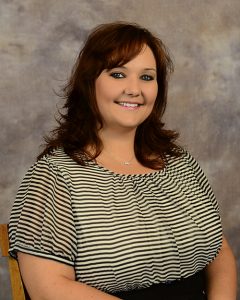 Sure, as APPA’s Vice President for Professional Development, I should praise and promote our premier professional development programs and conferences—and I do every chance I get. But I also know that those offerings are only successful and can only be considered “premier” because of the people delivering them, administering them, and attending them—especially the people attending them. Ask any APPA faculty member from any program, and I am certain they will tell you how much they look forward to each new group of attendees.
Sure, as APPA’s Vice President for Professional Development, I should praise and promote our premier professional development programs and conferences—and I do every chance I get. But I also know that those offerings are only successful and can only be considered “premier” because of the people delivering them, administering them, and attending them—especially the people attending them. Ask any APPA faculty member from any program, and I am certain they will tell you how much they look forward to each new group of attendees.
We faculty members bring the same content to each program offering; in my case, Covey’s 7 Habits will always be the 7 Habits. But the attendees bring the varied experiences and perspectives that make each offering different. The in-class discussions and the meal and break-time conversations are what give each program a unique flavor we can all enjoy.
Now think back to the last chapter, regional, or international APPA meeting you attended. Chances are that the keynote speaker was on your radar and you had probably identified a few notable breakout sessions you wanted to attend. But I bet that your “I cannot wait to see _________” list was at the front of your mind. You probably could not wait to reconnect with a dear friend from another state (or country, even!). And you were likely eager to share personal and professional updates and hear the same from others.
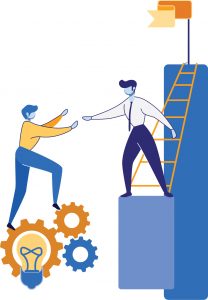 Your APPA network is the foundation upon which your APPA experience is built. Networking is defined as “socializing for professional or personal gain,” yet in the last 10 months of this global pandemic, we have been told repeatedly to “socially distance.” It is completely the wrong terminology. We should physically distance ourselves from others for our physical health and safety—yes, absolutely! But now, more than ever, we should socially engage with others for our mental health and sanity.
Your APPA network is the foundation upon which your APPA experience is built. Networking is defined as “socializing for professional or personal gain,” yet in the last 10 months of this global pandemic, we have been told repeatedly to “socially distance.” It is completely the wrong terminology. We should physically distance ourselves from others for our physical health and safety—yes, absolutely! But now, more than ever, we should socially engage with others for our mental health and sanity.
While the cessation of in-person deliveries of APPA’s professional development programs as well as the postponement of local, regional, and international APPA meetings may have felt like a networking wet blanket, the truth is that there is still networking to be done! How we network has changed, but the need to network—to remain engaged with your facilities colleagues, to keep connected with your facilities friends—remains vitally important.
APPA, its regions, and its local chapters have all provided (and continue to provide) myriad opportunities for engagement and networking, including APPA’s Town Halls on Friday afternoons, virtual deliveries of the Leadership Academy and Supervisor’s Toolkit, the new APPA365 app, social media, and even virtual happy hours.
Your APPA “peeps” are still out there—whether they are old friends waiting to hear from you, or new colleagues you will meet in a virtual program delivery. If you have remained engaged with APPA during this time, thank you! Your engagement has been a boon to the organization and all of its members. If you have been disconnected, I invite you to reconnect with APPA, its programs, and most importantly, its people. Borrowing from Olive Garden’s old slogan, “When you’re here, you’re family,” I would alter it slightly to say, “In APPA, no matter where you are, you are family.” Take it from my mom—she knows.
Beth Clark is a budget analyst at Pennsylvania State University in State College, PA, and serves as APPA’s Vice President for Professional Development. She can be reached at [email protected]. This is her first article for Facilities Manager.



